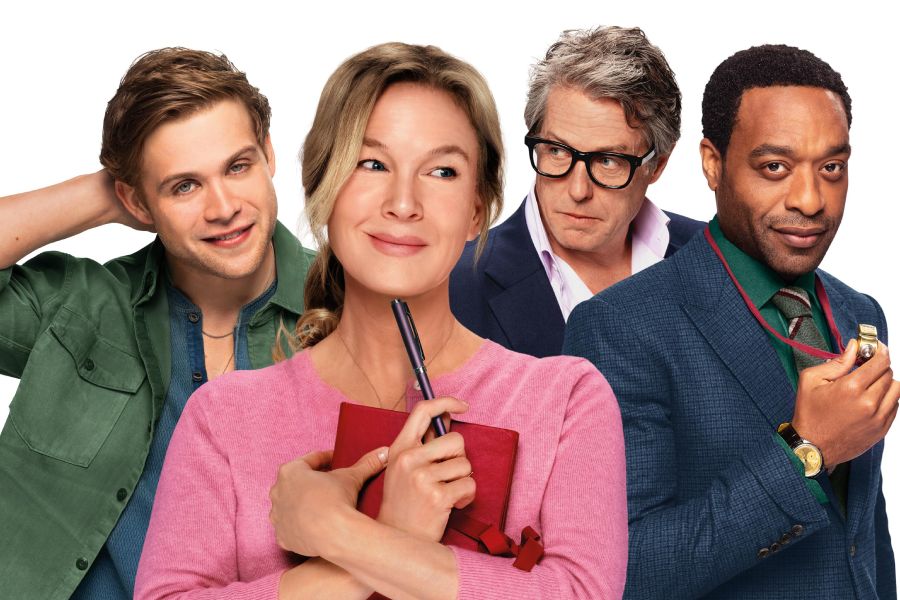Number of agonising hours spent dreading the film — 48; PTSD flashbacks about Helen Fielding’s book — 12; sad thoughts anticipating the absence of Colin Firth — 447; positive thoughts about the film — 0.
Bridget Jones: Mad About the Boy was not a film I was looking forward to watching. Having read Helen Fielding’s third Bridget Jones novel and been traumatised by the whiny 50-something Bridget had turned into, I had no interest in watching that unfold on screen. And there was this big gaping hole left by the death of all our happily-ever-after man, Mark Darcy, played by Colin Firth.
But, the film, directed by Michael Morris, left me pleasantly surprised. It has shaved off all the annoying bits of the book and kept the best parts. Bridget Jones: Mad About the Boy is a surprisingly poignant look at love, loss and the difficult process of moving on. For those who haven’t read the book (be blessed), Mark Darcy has been dead for four years, killed by a landmine on a humanitarian mission in Sudan.
Bridget, now in her 50s with two adorable kids, Billy and Mabel, is still struggling to get used to life without Mark Darcy. She is still late for everything, turns up at her children’s school in dolphin pyjamas, and has a personality as big as ever.
And she is, thanks to Renee Zellweger who is still very much in touch with her inner Bridget, still as relatable. Bridget reminds us that we have been part of her journey not just because of her Mr Right (Mark Darcy, we will always miss you) but because we also loved her. She shows the wear and tear of age not just physically but mentally as well. She is still prone to occasional, inadvertent goof-ups and she is once again single.
Good thing then that she still has her “party petrol” (wine)-guzzling friends around her and it is a joy to see a Shazzer still prone to feminist rants, Tom who is still living off his one song wonder and Jude still hyperventilating about her job even after becoming a “CFO/COO/C-something”, and they are all still obsessing about Bridget’s singleton status. It is a heartening sight that once again feels absolutely relatable and promising for about-to-be 50-somethings.
Mark Darcy (he can never be just Mark or just Darcy) might be gone but his presence is felt through the film, not just in gratifying fans with special appearances of Firth, but in terms of how Bridget and her children deal with his death. Zellweger makes the struggle of wanting to keep the memories of Mark Darcy alive and still move on believable. And it is difficult to keep dry eyes in those moments. The same is true about having a silly grin on your face for when, as per Bridget’s style, she is bumbling through Tinder and texting her new boy-toy Roxster — a delightful Leo Woodall who gamely accepts all the shameless objectification.
This time the other end of the triangle is Mr Wallaker (Chiwetel Ejiofor), the new science teacher at Billy’s school who is as flummoxed by Bridget’s energy and idiosyncrasies as Mark Darcy was (sorry, but you can’t help but compare). They get off on the wrong foot, but even if you haven’t read the book you know that this is the man she will end up with. Ejiofor is good as the somewhat starchy man who can’t resist Bridget, and he had very large boots to fill.
The best surprise, however, is the presence of Hugh Grant’s charming cad of a man Daniel Cleaver in Bridget’s life. It is wonderful to see how their relationship has evolved where Daniel, who is still a charming cad and still talking about Bridget’s granny panties, is now the well-loved, if inappropriate, “uncle Daniel” to her kids. The way they are there for each other, without fail and without much ado, is heart-warming. Grant wears Daniel Cleaver like a second skin as he teaches the kids to make a ‘Dirty Bitch’ and dates models half his age.
Thanks to the writing by Helen Fielding, Dan Mazer and Abi Morgan, the film keeps the stuff that made the book (the whining, the klutziness, the less-than-average IQ behaviour) a chore to a minimum, making this the second best Bridget movie since the original.
Tubs of popcorn eaten — 1; number of times the film made me cackle — plenty; number of sighs heaved — several; number of tissues used (for tears, not drool) — 3; regrets about giving up a Sunday afternoon — 0.










